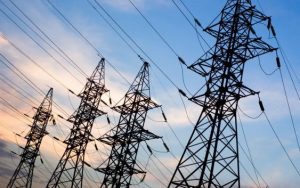A new market mechanism designed to reduce the impacts of pollution on the Great Barrier Reef has been kick-started with banking giant HSBC and the Queensland government announced as the first buyers of so-called “‘reef credits”.
These new “‘reef credits’ are the creation of environmental traders GreenCollar, working in collaboration with Queensland landholders, to establish a new certification scheme that works in much the same way as carbon offset mechanisms. They are designed to rewards farmers and graziers for reducing the level of pollutants in wastewater leaving farmlands.
The first ‘reef credits’ have been issued to projects located in Queensland’s Tully River Catchment, with sugarcane farmers recognised for improvements in the quality of water that ultimately flows into areas of the Great Barrier Reef, by preventing nitrogen, sediment or pesticides making their way into the waters of the reef.
“Farmers and graziers are important stewards of the catchments of the Great Barrier Reef,” local farmer Jamie Dore said. “Reef Credits recognise the value of the work undertaken by Queensland farmers and provide a valuable additional source of co-investment that isn’t impacted by commodity prices and doesn’t compromise existing agricultural practices.”
“It is exciting to see both leaders in the private and public sectors investing in the work we’re doing, and supporting the future of this iconic asset.”
HSBC and the Queensland government have now joined the scheme as the first purchasers of the reef credits.
GreenCollar, one of Australia’s largest facilitators of carbon farming projects, and one of the largest participants under the Emissions Reduction Fund, has sought to adapt the approach taken in carbon offset markets to reduce the flow of agricultural pollutants into the Great Barrier Reef.
According to a ‘reef credit standard’ developed by GreenCollar, each ‘reef credit’ issued under the scheme represents a “verified amount of pollutant that has been prevented from entering the Great Barrier Reef lagoon”, with each ‘reef credit’ representing a kilo of avoided pollution.
The health of the Great Barrier Reef has been under immense stress due to the combined impacts of pollution and warming ocean temperatures. Scientists have observed a significant decline in the health of the reef, with a surge of mass bleaching events and a decline in coral coverage.
A summary of climate science published by the Intergovernmental Panel on Climate Change suggests that coral reefs would decline by 70 to 90 per cent with global warming of 1.5°C, and virtually all coral reefs would be lost with global warming of 2°C or more.
In an effort to protect the environmental and tourism value of the Great Barrier Reef, GreenCollar created the accreditation scheme for pollution reduction project and oversees the issuance of ‘reef credits’ to projects in line with the amount of pollution they are able to avoid. GreenCollar predicts that six million reef credits could be created by 2030, that could be purchased as environmental offsets in a similar way to carbon offsets.
“The Great Barrier Reef contributes $6.4 billion to the national economy and supports more than 64,000 jobs up and down the Queensland Coast. Poor water quality is the second-biggest threat to the reef, and helping to protect this iconic asset will continue to support these jobs and businesses,” GreenCollar CEO James Schultz said.
The Queensland government welcomed the opportunity to become one of the first purchasers under the Reef Credits scheme, with environment minister Leeanne Ecoch saying she hoped it would help support further investment in improving environmental outcomes for the Great Barrier Reef.
“Exploring ways to accelerate and incentivise actions to improve water quality flowing onto the Great Barrier Reef was a priority activity for our Major Integrated Projects,” Enoch said.
“The establishment of the Reef Credits Scheme, this first purchase, and a new partnership between GreenCollar and HSBC signals the start of an exciting new way to value natural capital and actions taken to deliver good environmental outcomes.”
HSBC said that the purchase of ‘reef credits’ formed part of the bank’s climate ambition statement, that includes targets to increase investment in zero carbon projects, and nature-based solutions over the next five years.
“Partnerships like this between governments, the private sector and firms like GreenCollar are vital to achieving net zero carbon, and appropriately valuing and investing in natural capital,” CEO of HSBC Australia Kaber Mclean said. “Our participation in this global first reinforces our credentials as a sustainable finance pioneer in the Australian market, as well as our commitment to safeguarding natural assets like the Great Barrier Reef.”
HSBC recently announced a partnership with Australian advisory firm Pollination Group, to invest up to A$ 4.15 billion in ‘natural capital projects’, that aim to protect the environment and cut greenhouse emissions.







